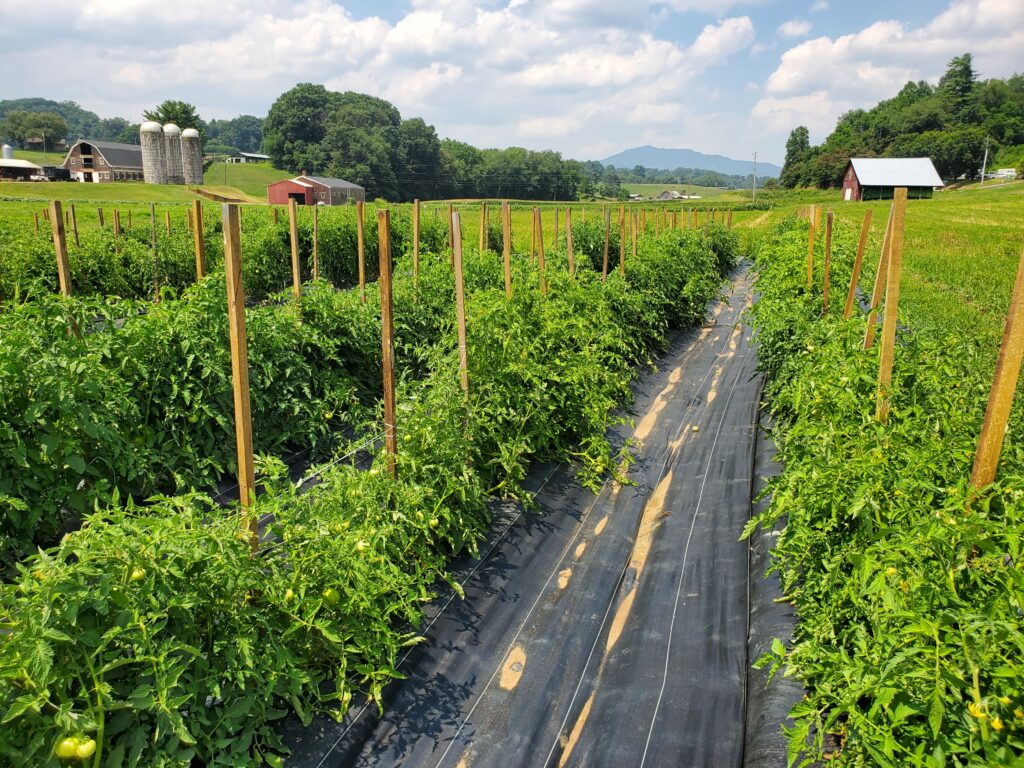Efficacy of Fungicides for Organic Tomato Production
go.ncsu.edu/readext?963447
en Español / em Português
El inglés es el idioma de control de esta página. En la medida en que haya algún conflicto entre la traducción al inglés y la traducción, el inglés prevalece.
Al hacer clic en el enlace de traducción se activa un servicio de traducción gratuito para convertir la página al español. Al igual que con cualquier traducción por Internet, la conversión no es sensible al contexto y puede que no traduzca el texto en su significado original. NC State Extension no garantiza la exactitud del texto traducido. Por favor, tenga en cuenta que algunas aplicaciones y/o servicios pueden no funcionar como se espera cuando se traducen.
Português
Inglês é o idioma de controle desta página. Na medida que haja algum conflito entre o texto original em Inglês e a tradução, o Inglês prevalece.
Ao clicar no link de tradução, um serviço gratuito de tradução será ativado para converter a página para o Português. Como em qualquer tradução pela internet, a conversão não é sensivel ao contexto e pode não ocorrer a tradução para o significado orginal. O serviço de Extensão da Carolina do Norte (NC State Extension) não garante a exatidão do texto traduzido. Por favor, observe que algumas funções ou serviços podem não funcionar como esperado após a tradução.
English
English is the controlling language of this page. To the extent there is any conflict between the English text and the translation, English controls.
Clicking on the translation link activates a free translation service to convert the page to Spanish. As with any Internet translation, the conversion is not context-sensitive and may not translate the text to its original meaning. NC State Extension does not guarantee the accuracy of the translated text. Please note that some applications and/or services may not function as expected when translated.
Collapse ▲
Organic tomato research in Waynesville, NC.
10/11/2023 – Our program has been a member of the Tomato Organic Management Initiative (TOMI) team for many years. This multi-state project is funded by USDA/NIFA OREI. One research initiative in this project is to evaluate fungicides for use in certified organic tomato production. The certified organic research unit on the Mountain Research Station in Waynesville was ideal for one of the research sites because of the high disease pressure in western North Carolina. The multi-site project was led by Dr. Dan Egel, the Purdue University pathologist on the TOMI team. Margaret Bloomquist, research scholar in the NC Alternative Crops & Organics Program in the Dept. of Horticultural Science at NC State, managed the North Carolina site.
Results from the study were published in the Crop Protection Journal in 2019, and Dan Egel, Lori Hoagland, and Ashley Adair recently published a grower-oriented bulletin with guidance on how to interpret the results and use the products. It is published on eOrganic and can be accessed here:
Efficacy of Selected Fungicides Listed for Organic Production for Tomato Disease Management
You can learn more about the TOMI project on eOrganic
Reviewed by Jeanine Davis on 12/6/2023.


